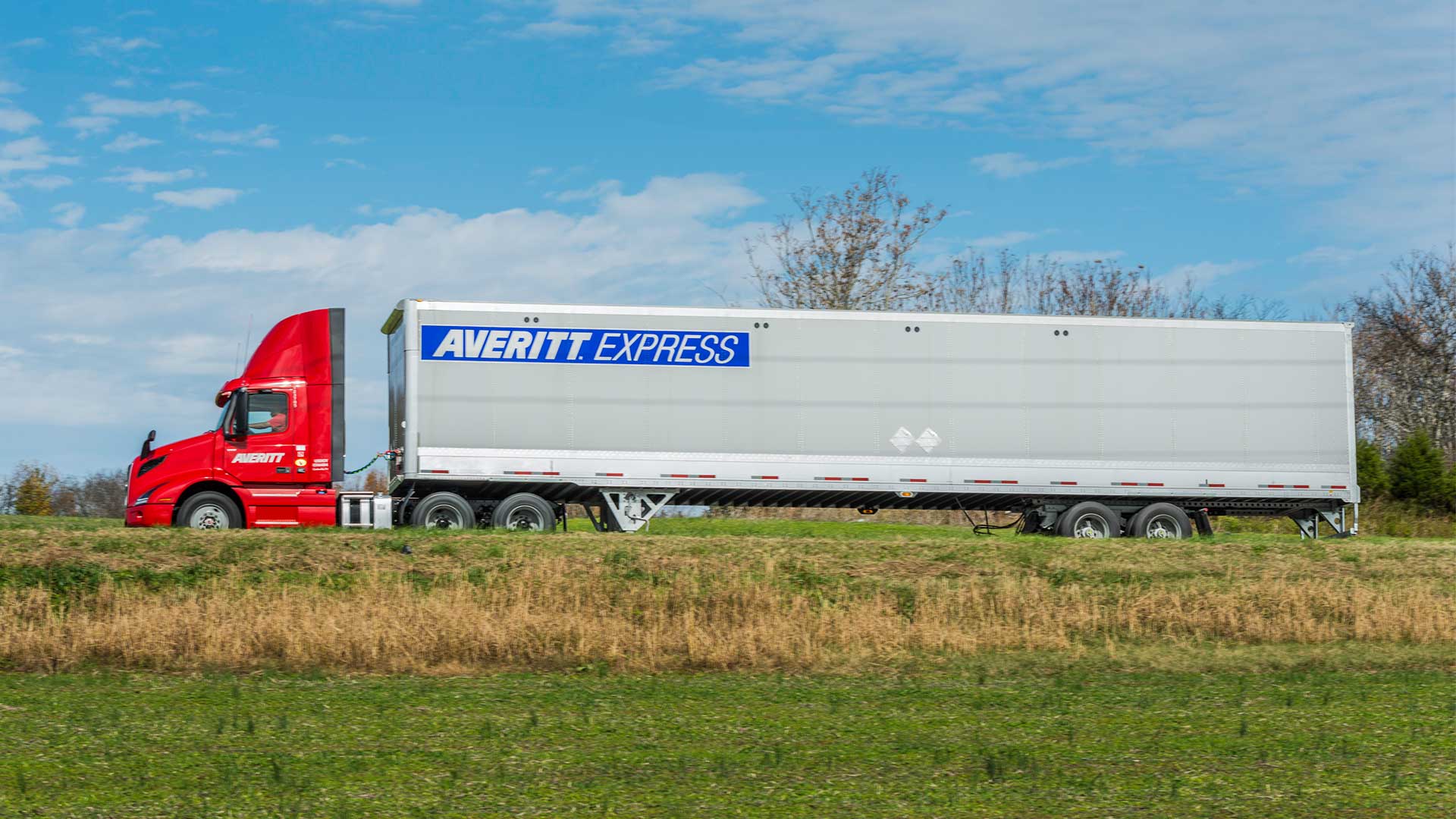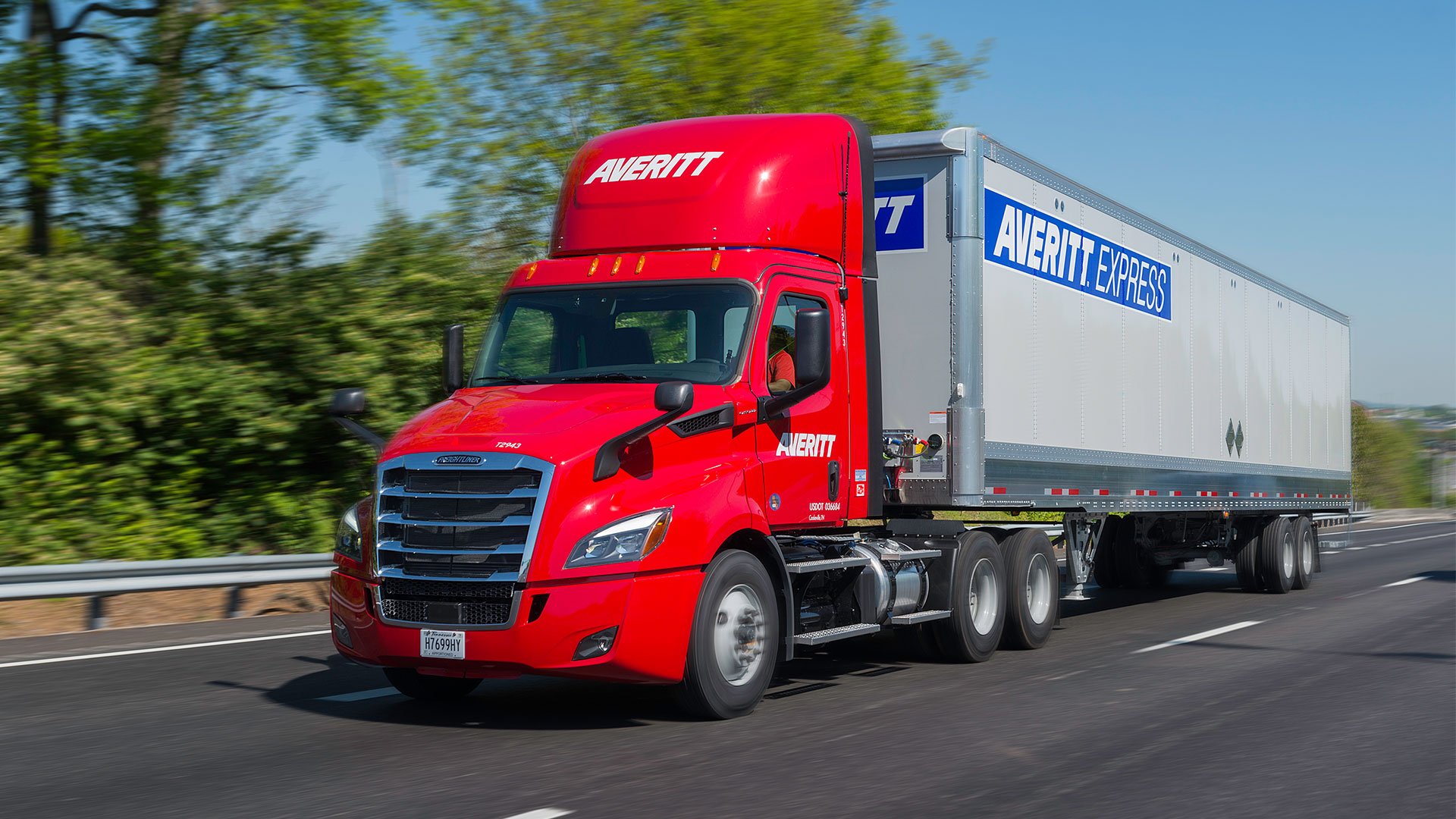The capacity crunch currently affecting the trucking industry is likely here to stay, at least for the immediate future. That’s the assessment from many experts, including Danny Crooks, of Averitt’s truckload leadership.
However, even during challenging business cycles there are steps shippers can take to improve their relationship with their carrier to help maintain mutual business goals and, ultimately get their freight moved.
BUILD RELATIONSHIPS
First, “it’s important to build alliances with your carrier,” advises Crooks.
RELATIONSHIPS ABOVE RATES: “All businesses are under pressure to survive during an economic downturn,” he acknowledges. Yet, shippers who take advantage of the imbalance to drive down rates could find themselves in a difficult situation when the marketplace shifts, which it will invariably do over time.
Naturally, shippers are looking for the best value. By keeping channels of communication open, shippers and carriers can mutually explore ways to achieve financial and operational goals.
PAYMENT TERMS: According to Crooks, some shippers have pressured carriers for extended payment terms during the economic downturn — anywhere from 60 days up to 120 days — which makes it very difficult for the carrier to meet its own financial obligations. Remember that a healthy balance sheet is good for both the shipper’s and the carrier’s business.
FIND THE HIDDEN GEMS IN YOUR CARRIER’S TOOLBOX
The second tip Crooks offers to shippers is to take advantage of the carrier’s resources, such as technology, innovation, and sustainability.
REDUCING DEADHEADS: There are often opportunities for shippers to consolidate shipments with different company divisions or even explore ways to share resources with their consignee, says Crooks.
EMBRACE TECHNOLOGY: Shippers should “take advantage of their carrier’s technology and make technology investments themselves,” emphasizes Crooks. While most large shippers “already have some sort of Transportation Management System (TMS) or warehouse planning solution, it’s important to further integrate those applications with the carrier’s network and planning tools,” explains Crooks.
SUSTAINABILITY: Fuel efficiencies and other cost savings associated with sustainable practices are a real and immediate advantage for carriers who have invested in sustainable initiatives, and shippers likewise gain from doing business with carriers who are investing in sustainable initiatives.
One such initiative is the U.S. Environmental Protection Agency’s SmartWay program, which has been a key component of the transportation industry’s overall efforts to reduce greenhouse gas emissions. “Averitt is a charter member of the SmartWay program,” says Crooks. In fact, Averitt has implemented a number of initiatives to reduce its carbon footprint, ranging from investments in auxiliary power units (APUs) for its trucks to lower energy usage and recycling programs at the company’s facilities. And while there may be an initial investment up front when embarking on certain sustainability initiatives, “the payoff in terms of better fuel efficiency and other savings can be significant,” says Crooks. Simply put, sustainability equates to improved operational efficiency and lower operating costs, which in turn enable carriers to better utilize equipment to meet the shippers' capacity demands.
BE A GOOD BUSINESS PARTNER
Crooks' final tip seems relatively easy, and that is to be a good business partner.
ON THE FRONT END: One way is to include the carrier during the preplanning phase to establish the best appointment times and to help avoid excessive wait times for drivers.
EQUIPMENT: Do your part, too, to manage equipment. For instance, some shippers have become accustomed to retaining trailers at their yard with little or no compensation for the carrier. However, that’s not a reasonable expectation, especially in today’s business environment. “Shippers have to realize that this is a cost for the carrier,” reminds Crooks.
Carriers are not only contending with a tough economy, there is an ongoing driver shortage, new regulations affecting engine emissions and safety, hours of service rules, and increased competition. The capacity crunch brings one more dimension to the challenging marketplace. However, by keeping these few tips in mind, shippers will put themselves on the road to success.
Now is the time for shippers to work closer with their carriers to address the capacity crunch challenges. Start by giving Averitt’s Truckload team a call at 800-622-2023 or email truckload@averitt.com to get the conversation going.







